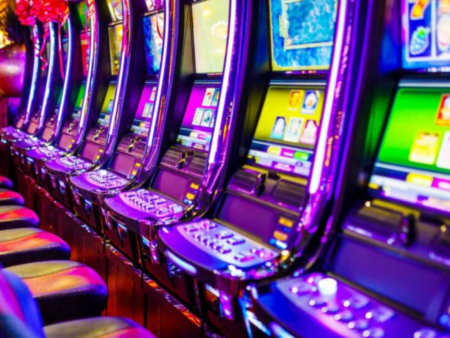Atlantic City, long renowned for its bustling casinos and vibrant nightlife, is at the heart of a contentious debate that has reignited discussions on public health and workers’ rights. A recent court ruling has maintained the legality of smoking in Atlantic City casinos, despite significant pushback from casino employees and health advocates. This decision underscores the complex interplay between economic interests, public health, and the rights of workers in one of the nation’s most prominent gambling hubs.
A Legal Battle Rooted in History
The issue of smoking in casinos is not new to Atlantic City. Since the inception of legalized gambling in the city in 1978, smoking has been a fixture within casino establishments. Over the years, various efforts have been made to curtail smoking in these venues, largely driven by health concerns and the changing social attitudes towards smoking in public spaces.
In 2006, New Jersey implemented the Smoke-Free Air Act, which banned smoking in most indoor public places and workplaces. However, casinos were granted a special exemption, allowing smoking on up to 25% of the gaming floors. This compromise was intended to balance public health concerns with the economic interests of the casino industry, which argued that a full smoking ban could lead to a significant drop in revenue.
Workers’ Push for Change
Despite the partial smoking ban, casino workers have long voiced their concerns about the health risks associated with exposure to secondhand smoke. These employees, who spend extended hours on the gaming floors, argue that the exemption puts their health in jeopardy. Over the years, numerous workers and advocacy groups have called for a complete ban on smoking in Atlantic City casinos, citing studies that link secondhand smoke to serious health issues such as lung cancer, heart disease, and respiratory illnesses.
The COVID-19 pandemic brought renewed attention to this issue. In 2020, as part of the pandemic-related health measures, a temporary smoking ban was imposed in Atlantic City casinos. This measure was welcomed by workers and health advocates, who hoped it would pave the way for a permanent ban. However, as restrictions eased, smoking was once again permitted in designated areas, much to the disappointment of those advocating for smoke-free workplaces.
The Court’s Rationale
The recent court ruling, which upheld the legality of smoking in Atlantic City casinos, was met with mixed reactions. The court acknowledged the health concerns raised by the workers but ultimately sided with the casinos, emphasizing the economic implications of a full smoking ban. The ruling highlighted that casinos are a significant driver of Atlantic City’s economy, providing jobs and generating substantial tax revenue for the state.
In its decision, the court also referenced the 2006 exemption granted under the Smoke-Free Air Act, noting that any change to the current law would require legislative action rather than judicial intervention. This has shifted the focus of the debate back to the New Jersey state legislature, where any potential amendments to the law would need to be considered.
Economic Impacts and Industry Responses
Casino operators have consistently argued that a full smoking ban would hurt their bottom line, potentially leading to job losses and decreased state revenue. They point to states like Pennsylvania, where smoking is allowed in casinos, as examples of markets that could lure away customers from Atlantic City if a ban were imposed.
Industry leaders also stress that the current compromise, which restricts smoking to designated areas, is a balanced approach that respects both the preferences of smoking patrons and the health concerns of workers. Some casinos have taken additional measures, such as enhancing ventilation systems and offering smoke-free sections, in an effort to mitigate the risks of secondhand smoke.
The Ongoing Debate and Future Prospects
The debate over smoking in Atlantic City casinos is far from over. Worker unions, health organizations, and anti-smoking advocates continue to press for a complete ban, arguing that no economic benefit should come at the expense of workers’ health. They are pushing for legislative action that would close the loophole in the Smoke-Free Air Act and make all indoor workplaces, including casinos, entirely smoke-free.
On the other side, the casino industry is likely to continue its efforts to preserve the status quo, emphasizing the potential economic consequences of a smoking ban. As Atlantic City’s casinos work to recover from the economic downturn caused by the COVID-19 pandemic, the industry’s focus remains on maintaining customer loyalty and financial stability.
FAQs About Smoking in Atlantic City Casinos
1. What is the current legal status of smoking in Atlantic City casinos?
Smoking is currently permitted in Atlantic City casinos, but it is restricted to designated areas that comprise up to 25% of the gaming floors. This exemption was granted under the 2006 Smoke-Free Air Act in New Jersey.
2. Why are casino workers pushing for a complete smoking ban?
Casino workers are advocating for a complete smoking ban due to health concerns. They are exposed to secondhand smoke, which has been linked to serious health issues such as lung cancer, heart disease, and respiratory illnesses.
3. What was the impact of the COVID-19 pandemic on smoking in Atlantic City casinos?
During the COVID-19 pandemic, a temporary smoking ban was imposed in Atlantic City casinos as part of health safety measures. This ban was welcomed by workers and health advocates, but smoking was allowed again in designated areas once restrictions were eased.
4. What was the reasoning behind the court’s recent ruling on smoking in casinos?
The court upheld the legality of smoking in Atlantic City casinos, citing the economic implications of a full smoking ban. The court emphasized that casinos are vital to Atlantic City’s economy and that any changes to the current law should be made by the state legislature, not through judicial action.
5. How does the casino industry view the smoking ban debate?
The casino industry argues that a full smoking ban could hurt their revenue and potentially lead to job losses. They believe that the current compromise, which allows smoking in designated areas, is a balanced approach that meets the needs of both smoking patrons and concerned workers.
6. Are there any measures being taken by casinos to address health concerns related to smoking?
Some casinos have enhanced their ventilation systems and created smoke-free sections to mitigate the risks associated with secondhand smoke. These efforts aim to balance customer preferences with worker health concerns.
7. What is the next step in the debate over smoking in Atlantic City casinos?
The debate now shifts to the New Jersey state legislature, where lawmakers will need to consider whether to amend the Smoke-Free Air Act to include a complete ban on smoking in casinos. The decision will weigh public health concerns against the potential economic impact on the casino industry.
8. What are the arguments for maintaining the current smoking policy in casinos?
Proponents of the current policy argue that allowing smoking in designated areas helps maintain customer loyalty and revenue, especially when competing with casinos in neighboring states where smoking is permitted.
9. How significant is the casino industry to Atlantic City’s economy?
The casino industry is a major economic driver in Atlantic City, providing jobs and generating significant tax revenue for the state. This economic importance is a key factor in the ongoing debate over smoking policies in casinos.
10. What are the potential health risks associated with secondhand smoke in casinos?
Secondhand smoke exposure in casinos can lead to serious health issues, including lung cancer, heart disease, and respiratory problems. These risks are particularly concerning for casino workers who spend long hours in environments where smoking is allowed.


















